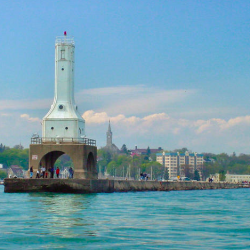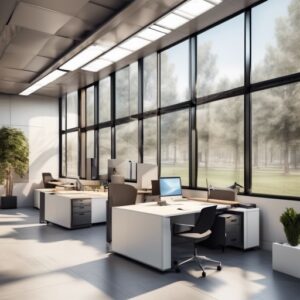In the ever-evolving landscape of hospitality, hotels are constantly seeking innovative solutions to enhance their operations and guest experiences. One such solution gaining momentum is the utilization of modular offices within hotel premises. Modular offices, known for their flexibility, efficiency, and cost-effectiveness, offer a myriad of benefits to hotels looking to streamline their operations and improve overall guest satisfaction. In this article, we delve into three compelling reasons why hotels should consider investing in modular offices.
Adaptability and Flexibility
Hotels often encounter fluctuating demands and evolving operational requirements. Whether it’s accommodating a sudden increase in staff during peak seasons or creating temporary workspaces for renovation projects, the need for adaptable infrastructure is paramount. Modular offices excel in this aspect, offering unparalleled flexibility to hotels.
Temporary Workspaces
During renovation or expansion projects, hotels may need temporary office spaces for management and staff. Modular offices can be quickly installed and tailored to specific requirements, providing a seamless transition without disrupting day-to-day operations.
Event Management
Hotels frequently host conferences, weddings, and other events that require additional administrative support. Modular offices can serve as on-site command centers, providing event organizers with a centralized hub for coordination and communication.
Seasonal Staffing
Peak seasons often necessitate the hiring of temporary staff to meet increased demand. Modular offices offer a cost-effective solution for accommodating seasonal employees, providing them with dedicated workspaces equipped with essential amenities.
Space Optimization and Efficiency
Efficient space utilization is essential for maximizing operational efficiency and optimizing guest experiences within hotels. Modular offices offer a compact yet functional alternative to traditional brick-and-mortar structures, enabling hotels to make the most of their available space.
Back-of-House Operations
Streamlining back-of-house operations is crucial for ensuring smooth and efficient hotel management. Modular offices can be strategically placed within hotel premises to house administrative functions, maintenance teams, and support staff, minimizing time spent navigating between departments.
Front Desk Expansion
As hotels expand their service offerings and amenities, the need for additional front desk space may arise. Modular offices can be customized to seamlessly integrate with existing reception areas, providing extra check-in counters or concierge desks to accommodate guest influxes.
Remote Work Solutions
With the rise of remote work, hotel staff may require flexible work arrangements that allow them to operate efficiently from various locations. Modular offices equipped with modern technology and ergonomic furnishings offer an ideal remote work environment, enabling staff to maintain productivity while on-site.
Cost-Effectiveness and Sustainability
Cost management is a top priority for hotels seeking to maintain profitability without compromising on quality. Modular offices present a cost-effective alternative to traditional construction methods, offering significant savings in both upfront expenses and long-term operational costs.
Reduced Construction Time and Costs
Traditional construction projects often entail lengthy timelines and exorbitant expenses associated with labor, materials, and permits. In contrast, modular offices can be prefabricated off-site, significantly reducing construction time and minimizing on-site disruption. This streamlined approach translates to cost savings for hotels without sacrificing quality.
Energy Efficiency and Sustainability
Sustainable practices are increasingly becoming a focal point for hotels aiming to minimize their environmental footprint. Modular offices can be designed with eco-friendly materials and energy-efficient features, such as LED lighting and HVAC systems, to reduce energy consumption and lower operational costs over time. Additionally, the modular construction process generates less waste compared to traditional building methods, further contributing to sustainability efforts.
Conclusion
In the competitive landscape of the hospitality industry, hotels must continuously innovate to meet the evolving needs of guests and stakeholders. Investing in modular offices for sale presents a strategic opportunity for hotels to enhance adaptability, optimize space utilization, and improve cost-effectiveness while demonstrating a commitment to sustainability. By leveraging the flexibility, efficiency, and cost-saving benefits of modular construction, hotels can streamline their operations, elevate guest experiences, and maintain a competitive edge in the dynamic hospitality market.


